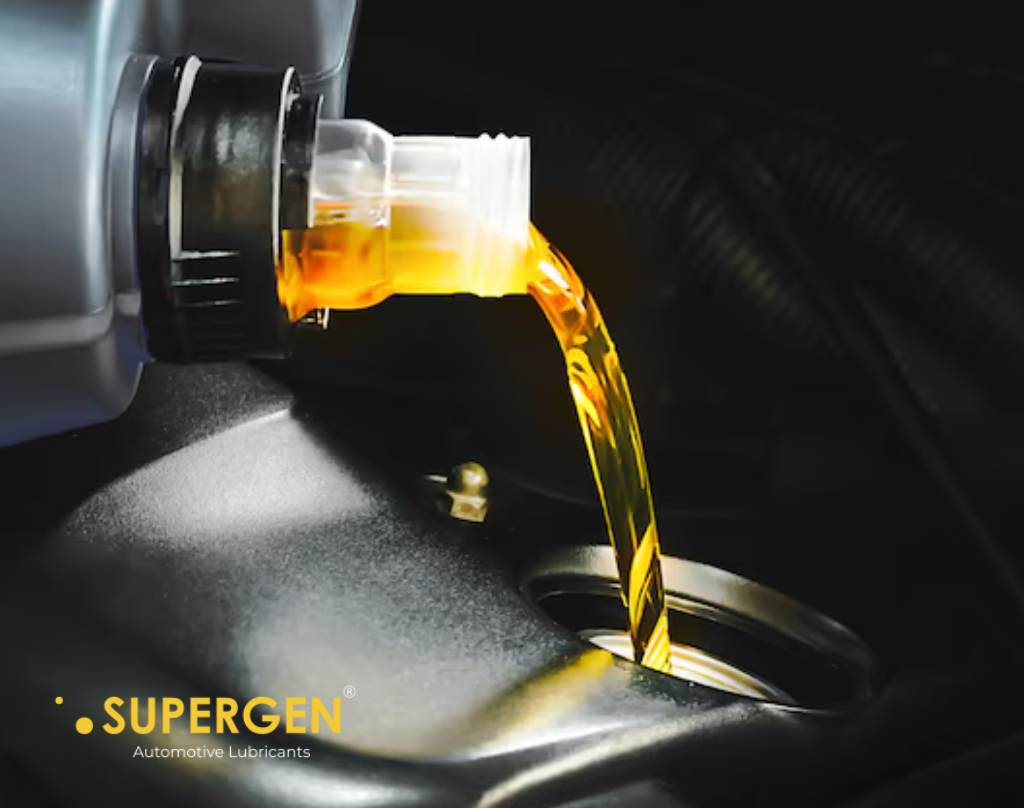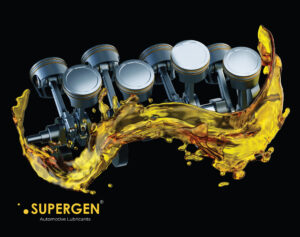In industries where heavy machinery and automotive engines play a crucial role, downtime can be an expensive, productivity-draining issue.
Whether it’s a fleet of vehicles, industrial equipment, or high-performance cars, reducing downtime is essential to maintaining efficiency, minimizing costs, and ensuring that operations run smoothly. One often-overlooked solution for minimizing downtime is the use of high-performance engine oil.
We’ll explore how high-performance engine oil can significantly reduce downtime, lower maintenance costs, and enhance the life and reliability of your machinery.
What is High-Performance Engine Oil?
High-performance engine oil is designed with advanced additives and base oils that provide enhanced protection, superior lubrication, and optimized performance in demanding environments.
Unlike standard oils, these oils offer enhanced viscosity, improved thermal stability, and superior anti-wear protection, making them ideal for high-stress applications.
High-performance engine oil isn’t just for race cars; it’s used across a wide range of industries, including construction, transportation, and manufacturing. Its advanced formulation helps to protect engines from wear and tear, corrosion, and extreme temperatures, extending the service life of machinery and reducing maintenance needs.
The Impact of Downtime on Operations and Productivity
Before diving into the benefits of high-performance engine oil, it’s essential to understand why reducing downtime is so critical. Downtime can result in:
- Revenue Loss: When machinery is not operational, revenue generation stops.
- Increased Labor Costs: Repairs and maintenance often require skilled labor, which can be costly, especially when done during unplanned breakdowns.
- Productivity Drops: Employees and operators cannot work if machinery is offline, leading to wasted labor hours.
- Accelerated Wear and Tear: Frequent stopping and restarting of engines can accelerate wear, increasing the need for repairs and decreasing engine life.
Considering the profound impact of downtime, investing in preventive measures—such as using high-performance engine oil—can help reduce operational costs significantly.
How High-Performance Engine Oil Reduces Downtime
1. Enhanced Lubrication for Reduced Wear and Tear
High-performance engine oils are formulated with advanced additives that provide superior lubrication. Proper lubrication ensures that moving parts glide smoothly against each other, minimizing friction and wear. Less friction means:
- Lower Risk of Overheating: Friction generates heat, and excess heat can lead to engine damage. High-performance oils reduce this friction and dissipate heat more effectively, reducing the risk of overheating.
- Longer Engine Life: Less wear and tear mean that components last longer, reducing the frequency of repairs and replacements, and minimizing downtime.
2. Superior Viscosity Stability Across Temperatures
High-performance engine oils maintain optimal viscosity over a wide range of temperatures, providing consistent performance in both hot and cold environments. This stability is crucial for reducing downtime in various ways:
- Reduced Cold Start Damage: In colder temperatures, standard oils can thicken, making it harder for the engine to start. High-performance oils remain fluid at low temperatures, reducing the stress on the engine during startups.
- Stable Performance Under High Temperatures: When engines operate at high temperatures, standard oils can thin out, leading to inadequate lubrication. High-performance oils are designed to retain their viscosity even at high temperatures, ensuring that lubrication is consistent and effective.
3. Better Contaminant and Deposit Control
Engine oils can pick up contaminants over time, including dirt, dust, and combustion by-products. High-performance engine oils are typically formulated with powerful detergents and dispersants that keep these contaminants suspended in the oil, preventing them from settling on engine components and forming deposits. Cleaner engines lead to:
- Reduced Component Wear: Deposits can create abrasive surfaces that accelerate wear. By keeping engines clean, high-performance oils minimize unnecessary wear and reduce the likelihood of breakdowns.
- Extended Maintenance Intervals: Cleaner engines require fewer oil changes and less frequent maintenance, directly reducing downtime.
4. Improved Oxidation and Thermal Stability
Oxidation occurs when engine oil reacts with oxygen, leading to the formation of acids and sludge. High-performance oils are engineered with antioxidants that slow down this oxidation process, which has several benefits:
- Reduced Sludge Buildup: Oxidation leads to sludge formation, which can clog filters and hinder engine performance. Sludge-free engines run more smoothly, preventing clog-related breakdowns.
- Longer Oil Life: Slower oxidation rates mean that high-performance oils last longer than standard oils, reducing the need for frequent oil changes and minimizing maintenance downtime.
5. Enhanced Protection Against Corrosion and Rust
Engines are vulnerable to corrosion and rust due to exposure to moisture, acids, and other contaminants. High-performance engine oils are formulated with anti-corrosion and anti-rust additives that protect engine components from these harmful elements. By reducing the likelihood of corrosion and rust, high-performance oils help:
- Extend Component Life: Corrosion can lead to component failure and costly repairs. Anti-corrosion additives in high-performance oils ensure that parts last longer, reducing the frequency of breakdowns.
- Improve Overall Engine Reliability: Corrosion is a significant cause of engine malfunctions. By protecting against it, high-performance oils contribute to a more reliable engine and fewer unplanned shutdowns.
6. Compatibility with High-Pressure and High-Performance Engines
High-performance oils are specifically designed to handle the high pressures and temperatures generated in high-performance and heavy-duty engines. This compatibility leads to:
- Minimized Component Stress: Under extreme pressure, standard oils can break down, leading to inadequate lubrication and increased friction. High-performance oils, however, maintain their properties under pressure, minimizing stress on engine components.
- Reduced Likelihood of Catastrophic Failure: High-pressure environments can cause rapid failure in engines that are not well-lubricated. High-performance oils prevent these failures, ensuring smoother operations and reducing the risk of sudden breakdowns.
Selecting the Right High-Performance Engine Oil
To achieve these benefits, it’s essential to select the right high-performance engine oil for your specific needs. Consider the following:
- Manufacturer Recommendations: Always refer to the manufacturer’s recommendations regarding the type and grade of oil suitable for your engine.
- Viscosity Rating: Choose a high-performance oil with a viscosity range suitable for the operating temperatures of your machinery.
- Additive Package: Look for oils with additives tailored to your industry’s needs, whether they’re anti-wear, anti-corrosion, or designed for high-heat environments.
- Certification and Testing: High-performance oils are often certified by organizations such as API, ACEA, or ILSAC. These certifications indicate that the oil has met stringent quality and performance standards.
Real-World Applications
Industries that have transitioned to high-performance engine oils report significant reductions in maintenance downtime and cost savings. Here are a few examples:
- Fleet Operators: Fleet operators often face high maintenance costs due to wear and tear from constant use. By switching to high-performance engine oils, many fleets have been able to extend service intervals, reduce breakdown frequency, and improve fuel efficiency, resulting in considerable cost savings.
- Construction Industry: Heavy machinery used in construction is subject to high pressures and temperatures. Many companies in this sector report lower repair costs and increased uptime after switching to high-performance oils that are better suited to their high-stress operating conditions.
- Manufacturing Plants: Manufacturing equipment runs continuously and requires robust lubrication to prevent overheating and wear. By using high-performance oils, plants have reduced their maintenance intervals and minimized unexpected downtime, improving overall productivity.
High-Performance Engine Oil as a Smart Investment
High-performance engine oil may have a higher upfront cost than standard oils, but the benefits far outweigh the expense.
By extending engine life, improving operational reliability, and reducing downtime, high-performance oils offer a strong return on investment for industries that rely on heavy machinery and fleets.
In the long run, switching to high-performance engine oil is a proactive step toward maintaining equipment health, enhancing productivity, and maximizing profits. When downtime is minimized, and machinery runs efficiently, businesses can focus on growth and meet their operational goals with fewer interruptions.
Whether you’re managing a single engine or an entire fleet, the value of high-performance engine oil in reducing downtime is clear—protect your machinery, and keep your business moving forward.
FAQ’s
1. Can using high-performance engine oil really reduce maintenance costs?
Yes! High-performance engine oil protects engine components more effectively, reducing wear and tear. This decreases the frequency of repairs, extends the time between maintenance intervals, and ultimately lowers overall maintenance costs.
2. How does high-performance engine oil improve fuel efficiency?
High-performance engine oils reduce friction between moving parts, which allows the engine to run more smoothly and efficiently. This reduction in friction means the engine requires less energy to operate, improving fuel economy over time.
3. Is high-performance engine oil suitable for older engines?
In many cases, yes. High-performance oils can provide added protection to older engines by reducing friction and protecting against wear. However, it’s essential to check the manufacturer’s specifications to ensure compatibility, as some older engines may perform better with oils specifically designed for them.
4. How often should I change high-performance engine oil?
High-performance engine oils often have longer change intervals than standard oils, but the exact frequency depends on your engine type, usage, and operating conditions. Check the manufacturer’s recommendations or consult with an expert for guidance on optimal change intervals.









